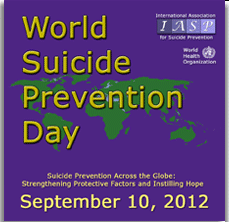What to Do When Someone Refuses to Take Their Medication – Treatment Noncompliance
It is an unfortunate truth that many mental illness patients won’t take their medications at one time or another. This is known as treatment noncompliance or treatment nonadherence, if you want to be a bit more politically correct.
And also unfortunate is the fact that when a person with a mental illness refuses to take their medication they almost inexorably get sicker. People with bipolar disorder who won’t take their medication, for example, often become manic and then wind up hurting themselves or someone else and end up in the hospital. And watching this happen, as a loved one, is extremely painful.
So is there anything you can do when a person refuses to take their medication? Is there anything you can do about treatment noncompliance?
Read More















Recent Comments